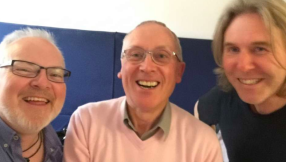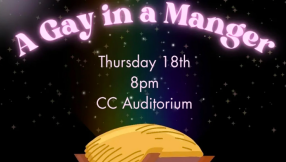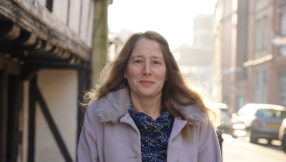Ministry finds fault with Yale Christian-Muslim declaration
Barnabas Fund's international director, Dr Patrick Sookhdeo, a former Muslim, says the inclusion of the Koranic commandment to speak to Christian and Jews (K 3:64) in the opening passage of the "Final Declaration" of the Yale Common Word Conference held last month actually calls for the conversion of Christians and Jews to Islam.
The opening passage also includes the "ascribe no partner" phrase, which is a Muslim critique of the Christian doctrines of the Trinity and the deity of Jesus, according to the Barnabas Fund.
"It seems that the implications of this verse were not realised or discussed," commented Barnabas Fund in a reflection on the declaration published Tuesday.
The declaration was made at the conclusion of an eight-day conference at Yale University that was in direct response to a letter signed by 138 Muslim leaders last autumn that called for peace between Muslims and Christians for the sake of world peace. Over 140 conference participants unanimously approved a cooperative statement at the end of last month that signalled the beginning of a new collaboration between Christians and Muslims where stronger assertions of faith would not just be allowed but required.
Barnabas Fund raised several concerns with the final declaration. The document raises Islam, Muhammad and the Koran to the same level as Christianity through the language "our common Abrahamic heritage" and "Judeo-Christian-Islamic monotheistic heritage", the ministry argues.
"This is a step towards affirming that Muhammad is a prophet and the Koran a word of God," the ministry said. "As Christians we affirm that the promises of Abraham are fulfilled in Christ."
Other unclear parts in the declaration state that "no Muslim or Christian ... should tolerate the denigration or desecration of one another's sacred symbols, founding figures, or places of worship."
Barnabas Fund said that particular statement needed further clarification because orthodox Muslims consider it blasphemy to say that Muhammad is not a prophet, that the Koran is not divinely inspired, or to invite a Muslim to acknowledge Jesus as the Son of God.
The ministry further argued that the declaration was unclear in what it meant by "freedom of religion". It did not assert that individuals have the right to choose, change and proclaim their religion without fear of punishment, nor did it effectively address the full reciprocity of Christians freely sharing Christianity and building churches on Muslim lands - a freedom followers of Islam are given in western countries, Barnabas Fund stated.
"We raise these issues because of our concern for the Biblical Christian faith and for the implications of the 'Common Word' process for Christian minorities in Muslim lands, Christian mission in Muslim lands, and converts from Islam to Christianity around the world," Barnabas Fund concluded.
"Although we respect and love Muslims, Christians cannot accept Islam as an equal and valid revelation from God. The denial of the deity of Christ and His redemptive work as well as of the Trinity will always stand in the way of interfaith dialogue and co-operation," the ministry argued.
"Just as Muslims cannot accept the Christian denial of Muhammad's prophethood and the Koran's status as the word of God, so Christians must take a clear stand on the central doctrines of their faith."
Despite the list of critiques, Barnabas Fund stressed at the beginning of its reflection that it "fully affirm[s] and support[s] all endeavors to work for peace in this torn world", and welcomes the "sincerity and goodwill of all involved in the process."
The ministry also said cooperation on social and economic issues should be based upon the groups' common humanity, rather than a "supposed" common theology as proposed in the declaration.













